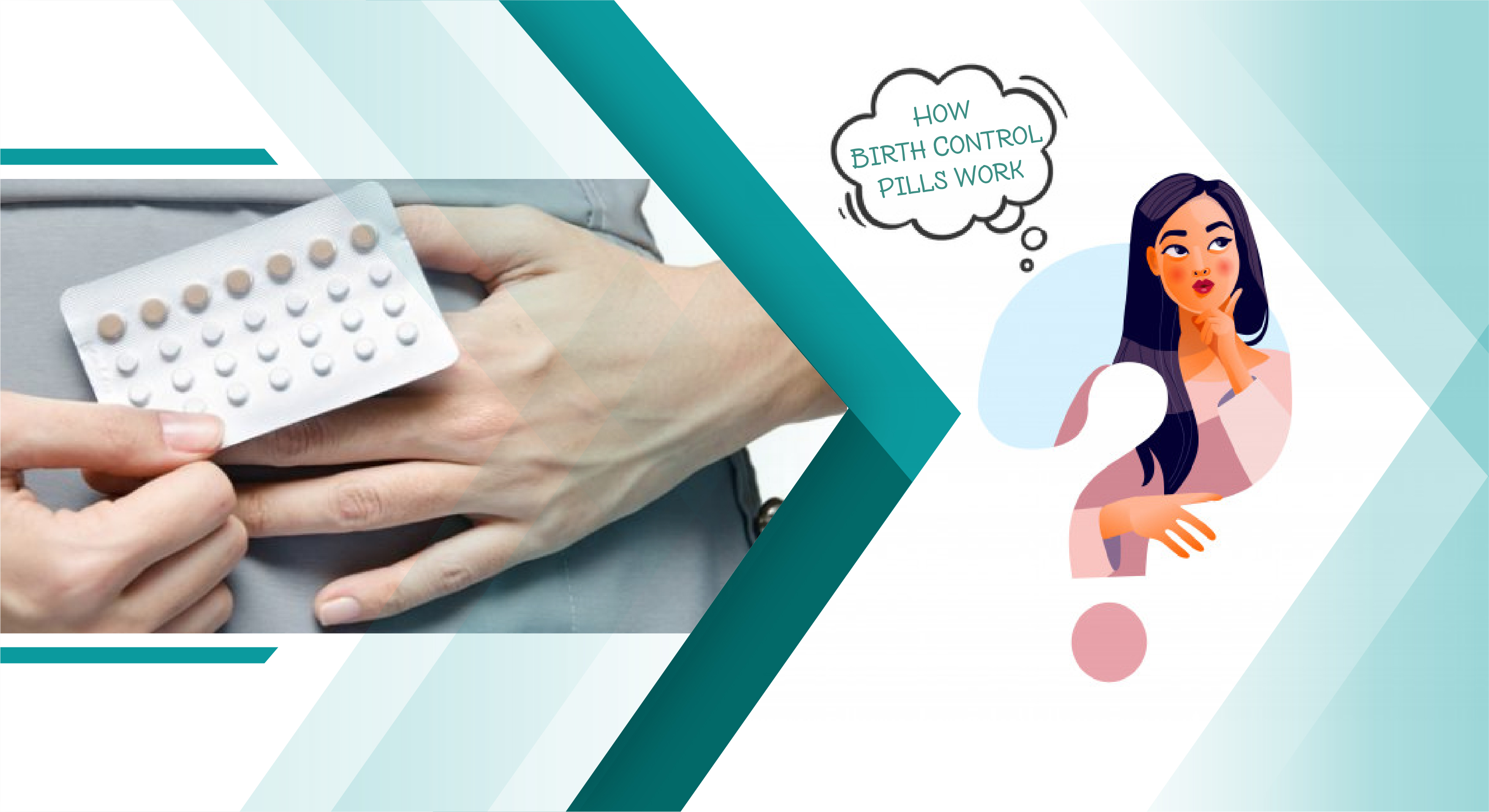Most of the fertility doctors or gynecologists agree that fertility and women's response towards it is a very complex and complicated matter. Women younger than 30 enjoy fertility at peak. Almost every woman below 30 can conceive and have a healthy pregnancy with very minimum issues and risks. But during these fertile ages, there's a rise in the number of women who take birth control pills.
Apart from the birth control pill, there are various options like birth control patch, birth control shot, IUI, contraceptive implants, condoms, and more. Every option has its own pros and cons with different accuracy ratios. Birth control pills are also called oral contraceptives and are among the first birth control options to come into a couple's mind after condoms. They are hormonal medications that manipulate the release of hormones in a woman's body. The use of these pills can manipulate/manage menstrual periods of a woman.
How Exactly Do Birth Control Pills Work?
As mentioned above, the oral contraceptive, or birth control pill, is nothing but hormonal preparation that contains combinations of estrogen and progestin or only progestin. The presence of these hormones in the blood hinders the release of luteinizing hormone (LH) and follicle-stimulating hormone (FSH) from the pituitary gland. LH and FSH play a crucial role in developing the egg and preparing the lining of the uterus. Progestin is responsible for making the uterine mucus, which surrounds the egg, making it more difficult for sperm to penetrate, therefore, for fertilization. In some women, progestin also restrains ovulation (release of the egg). The different combinations of estrogen and progestin in birth control pills are known as monophasic, biphasic, or triphasic.
What Are The Different Types Of Birth Control Pills?
Monophasic birth control pills deliver the same combination of hormones every day. The estrogen and progestin are often in equal amounts. Usually, they are only for the first 21 days. Only some companies manufacture a 28-day pill pack.
Biphasic birth control pills change the level of hormones for one time during the pill pack. They deliver the same amount of estrogen each day, but the progestin levels are increased about halfway or in the last seven days through the pill cycle. They can be both 21 or 28-day.
Triphasic birth control pills have a constant or changing estrogen and progestin combinations throughout the entire pack. Depending upon the company, either the estrogen concentration is, or the progestin, or both for two times during the full cycle.
It is essential to note that there's no evidence of change in effectiveness whether you take any of the above. The three categories are only for managing a side effect according to different body types. Another thing, whether you choose a 21 or 28-day pill pack, only the first 21 days pill will have hormones in no matter what proportion, the last 7-day pill in 28 are often placebo or no hormone ill. These extra seven are just for maintaining the schedule or habit or psychological satisfaction to women.
Can Birth Control Pill Cause Infertility?
This is among the most asked questions in recent times. Many women have started using birth control pills for delaying pregnancy, but their prolonged use haunts them of this question for sure. Often Gynecology Doctors have a bit of a different approach towards this question, but when collectively put after going through various pieces of information, arguments, researches, and more. The following observations can be noted:
- The long-term use of pills does cause conception issues and irregular menstruation.
- Infertility caused by them is temporary and often gets repaired on its own in around six months.
- There can be pregnancy complications, but the chances of it are very low, almost rare.
- In rarest of the cases, the use of pills results in permanent infertility.
The infertility is simply an inability to conceive naturally even after trying for more than one year (below 40) or six months (above 40). But how does the use of pills cause fertility issues? As we read above, how the hormones in pills manipulate the brain in signaling to increase the release of hormones that can delay conception. The prolonged use of these pills creates a disturbance in the natural functioning of the body. Women start experiencing delayed menstrual, irregular menstrual with heavy bleeding, and in some cases, no menstrual at all.
The pills have also been observed to cause thinner endometrium linings with their prolonged use. The endometrium tissue is what causes the thickening of the uterus wall for the fertilized egg to get attached. Thin uterus lining can cause miscarriages and other complications during pregnancy. However, this situation is also very rare. There's only limited research for it, so as long as the IVF cycle or natural conception is successful, the chances of a healthy pregnancy can be assumed as similar to that of a normal woman.
How To Get Pregnant If I Have Been Using Birth Control Pills For Years?
Often women expect to return to the normal menstrual cycle and be pregnant in one month of discontinuing the pill itself. The prolonged use of birth control pills creates a new normal for the body, but when women discontinue the pill, the body also needs adequate time to adjust to its normal functioning. Age also significantly affects this process. Most women generally experience normal and regular menstrual by two to three months irrespective of age, but women who don't experience the same are more likely to be above 35. In totality, the couple shall try for at least one year (below 35) or six months (after 35) after discontinuing the pill for natural conception.
Conclusion
Throughout the use of birth control pills, or trying to conceive after discontinuing it if you experience heavy bleeding, pain during coitus, extended and extremely painful headache or body ache, or other such symptoms, we advise you to visit the best gynecologist near you. There are many myths attached to women's menstrual, conception, birth control pills, and more. We recommend you to consult a medical professional before following any advice. In the end, experiencing temporary infertility and irregular or no menstrual because of prolonged use of birth control pills or oral contraceptives is entirely normal. There's no medical evidence to state that the use of these results in permanent infertility or definite complications in pregnancy.



 IVF Centers
IVF Centers IVF Doctors
IVF Doctors Joint Replacement
Joint Replacement Spine Surgeries
Spine Surgeries Dental
Dental Slimming/Weight Loss Clinics
Slimming/Weight Loss Clinics Hair Transplant Clinics
Hair Transplant Clinics Physiotherapy clinics
Physiotherapy clinics
 Search
Search





